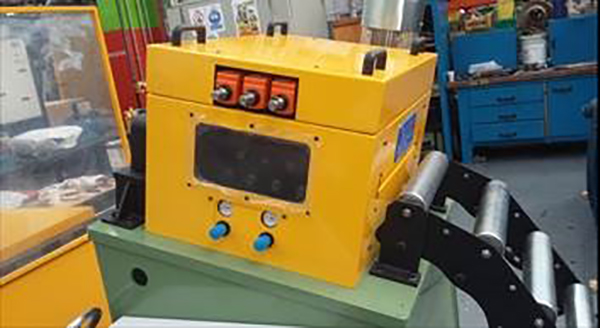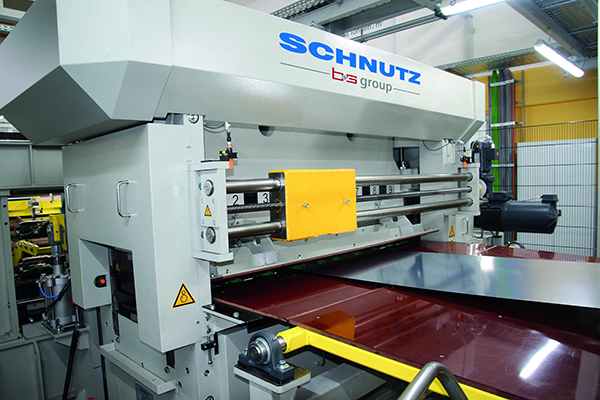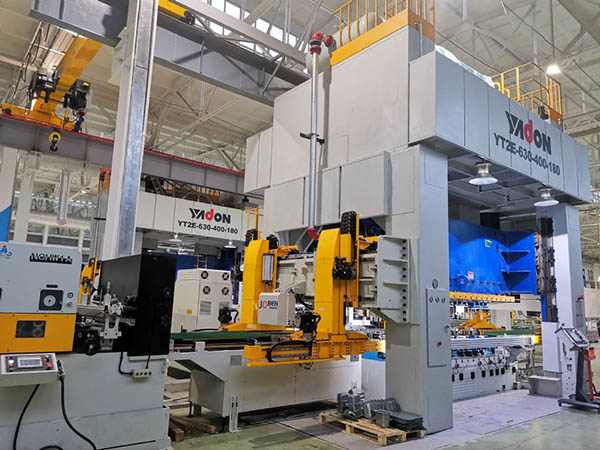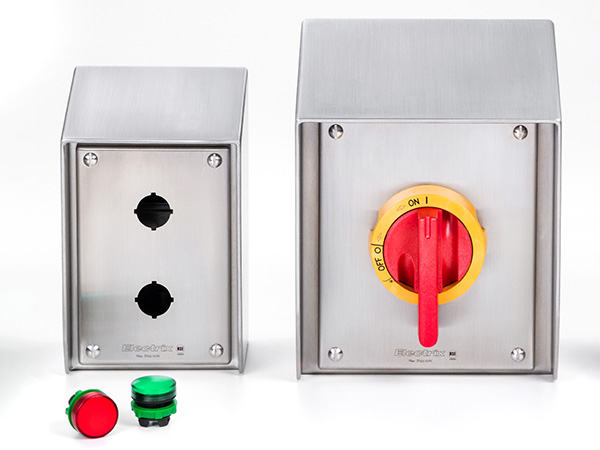Atkin Automation, part of Group Rhodes, has added the newly developed Servo Rollfeed machine to its range.

The Atkin RF70-300 Servo Rollfeed, which is used for the control of steel strip, features variable widths from 150 to 450 mm, plus hardened rolls with a grit blast finish for added durability. RF70-300 Servo Rollfeed machines have a height-adjustable press mounting bracket, pneumatic pilot/strip release system and an electronic cambox.
The machine also includes multi-pitching software with ‘gag’ control to prevent blockages, and utilises Febrofen rolls for delicate materials. Pilot release, adjustable feed height, entry rolls and material side guides come as standard, with the options of motorised height adjustment and bespoke press or floor-standing brackets.
Geoff Barker, sales manager for Atkin Automation, says: “This is an exciting new addition to our range, which has many innovative features and benefits. We are looking forward to demonstrating it to industry over the coming months.”
All rolls are induction-hardened to minimise marking and improve longevity, and are equipped with run-in roller bearings with seals to reduce maintenance and improve cleanliness when running polished or coated materials.
All units are fully manufactured at the company’s Wakefield facility in West Yorkshire, which has a history of manufacturing and supplying these products that stretches back over 30 years.
Atkin Automation, originally WT Atkin, specialises in high-quality coil processing line equipment and has a long history of serving both UK and international markets, including the automotive, white goods and construction industries.
For further information www.grouprhodes.co.uk























